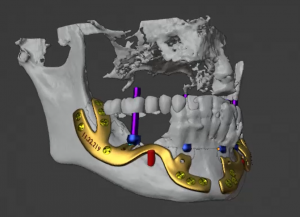Some people naturally have more sensitive teeth than others due to having thinner enamel. The enamel is the outer layer of the tooth that protects it. In many cases, the tooth’s enamel can be worn down from:
- brushing your teeth too hard
- using a hard toothbrush
- grinding your teeth at night
- regularly eating or drinking acidic food and beverages
Sometimes, other conditions can lead to tooth sensitivity. Gastroesophageal reflux, for example, can cause acid to come up from the stomach and esophagus, and may wear down teeth over time. Conditions that cause frequent vomiting — including gastroparesis and bulimia— can also cause acid to wear down the enamel.
Gum recession can leave sections of the tooth exposed and unprotected, also causing sensitivity.
Tooth decay, broken teeth and chipped teeth and worn-down fillings or crowns can leave the dentin of the tooth exposed, causing sensitivity. If this is the case, you’ll likely only feel sensitivity in one particular tooth or region in the mouth instead of the majority of teeth.
How are sensitive teeth diagnosed?
If you’re experiencing tooth sensitivity for the first time, make an appointment with your dentist. They can look at the health of your teeth and check for potential problems like cavities, loose fillings, or recessed gums that could be causing the sensitivity.
Your dentist can do this during routine dental cleaning. He will clean your teeth and do a visual exam. He can also check your tooth sensitivity by using dental instruments to or order an x-ray of your teeth to rule out causes like cavities.
How is tooth sensitivity treated?
If your tooth sensitivity is mild, you can try over-the-counter dental treatments.
- choose toothpaste that’s labeled as being specifically made for sensitive teeth. These toothpastes won’t have any irritating ingredients, and may have desensitizing ingredients that help block the discomfort from traveling to the nerve of the tooth
- when it comes to mouthwash, choose an alcohol-free mouth rinse, as it will be less irritating to sensitive teeth
- using softer toothbrushes and brushing more gently can also help. Soft toothbrushes will be labeled as such
It typically takes several applications for these remedies to work. You should see an improvement within a week.
If home treatments don’t work, you can talk to your dentist about prescription toothpaste and mouthwash. They may also apply fluoride gel or prescription-grade desensitizing agents in-office. These can help to strengthen the enamel and protect your teeth.
Treating medical conditions that cause tooth sensitivity
If underlying conditions are causing your tooth sensitivity, you will want to treat it before it causes the enamel to wear down and damage the teeth.
Receding gums can be treated by brushing more gently and maintaining good oral hygiene. In cases of intense sensitivity and discomfort due to severe gum recession, your dentist may recommend using a gum graft. This procedure involves taking tissue from the palate and placing it over the root to protect the tooth.
You can train yourself to stop clenching or grinding your teeth by being mindful not to do so during the day. Reducing stress and caffeine before bed can also help prevent you from grinding your teeth at night. If this does not work, you can use a bite at night to prevent the grinding from damaging your teeth.
What’s the outlook for tooth sensitivity?
If your tooth sensitivity is making it difficult to eat, talk to your dentist about finding a solution. There are many toothpastes and mouthwashes designed for sensitive teeth available over the counter.
If these aren’t effective, talk to your dentist about prescription toothpaste and mouthwash. You should also make an appointment with your dentist if you experience symptoms of cavities or potential root damage so you can get treatment quickly and prevent complications. These symptoms may include:
- spontaneous tooth pain that occurs without an obvious cause
- tooth sensitivity localized to one tooth
- sharper pain instead of milder pain
- staining on the surface of your teeth
- pain when biting down or chewing
Do not wait long to visit a dentist, the sooner you get, the problem will probably be resolved easier, quicker and of course cheaper – we recently wrote why is it important to visit a dentist regulary and without delay. Feel free to contact us for healthy smile.
Author: dr. med. dent. I. Malić




